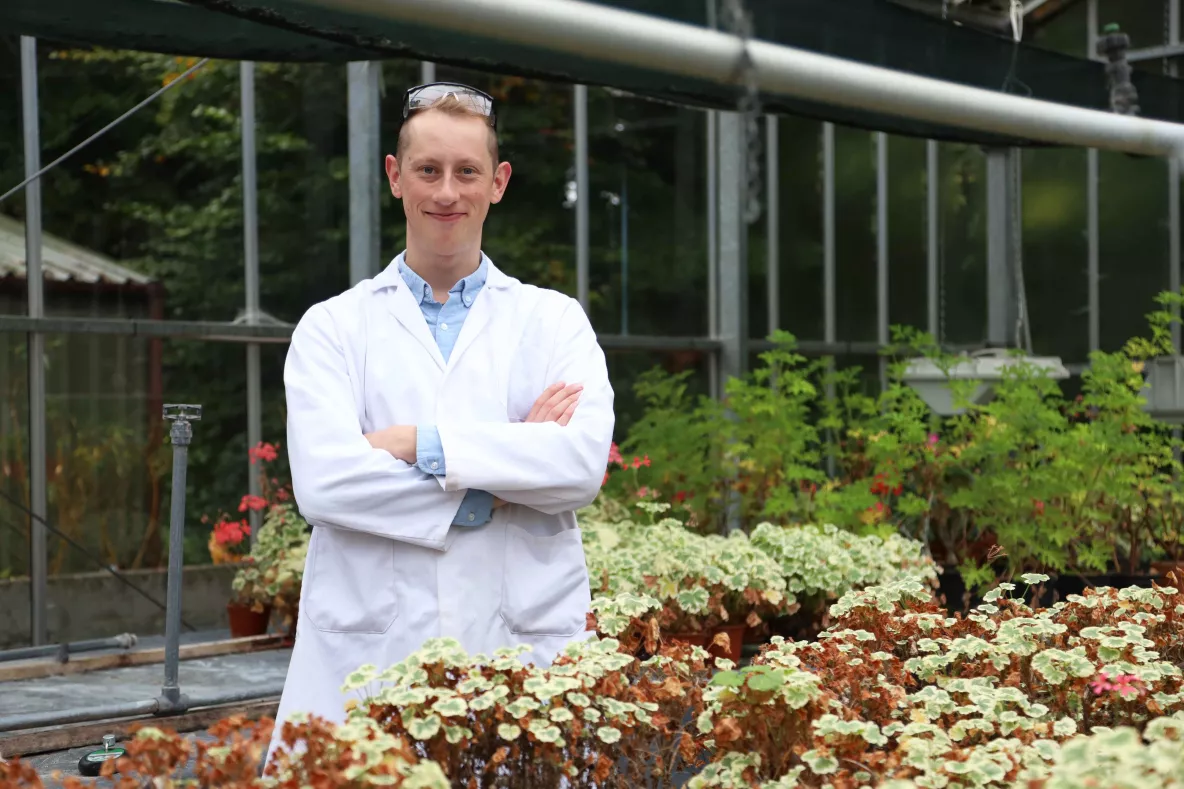

PhD student Nathan Bourke is researching constructed wetlands and their use in mine wastewater remediation. We caught up with him to ask him about his research journey and ask his advice about completing an Irish Research Council Funding application.
Tell us about your research topic?
My research focuses on a natural alternative to clean wastewater compared to the current methods which are costly and reagent heavy. It is remarkable how natural processes are capable of filtering and purifying the wastewater generated by human activities. The foundation of my research involves the strategic planting of wetland species, such as reeds and rushes, in areas where mine wastewater is discharged; this approach has shown capacity in enhancing the water quality to meet environmental standards. Additionally, I have a strong appreciation for botany and the study of plant-environment interactions, as these organisms are prevalent in our daily surroundings and yet hold the capacity for many scientific advances. Engaging with this field feels akin to uncovering a previously hidden aspect of the environment that has always been present.
Was it a logical step for you to progress from undergraduate to PhD – what motivated you to pursue a career in research?
At the time of completing my undergraduate degree, I was uncertain about my future career path and distinctly recall expressing that I had no intention of pursuing a PhD. However, my perspective began to shift when I took on the role of a Teaching Assistant within the Department of Biological Sciences. During this period, I discovered that engaging in research was a significantly different experience compared to the assignments and exams I expected. Being surrounded by researchers who were actively contributing to advancements in science inspired me to pursue a similar career myself. I was particularly drawn to the autonomy, flexibility and opportunity to drive positive change.
Do you remember the day your found out you had received Irish Research Council funding towards your PhD? Can you describe how you felt?
The initial feeling I recall was one of surprise, followed by a deep sense of responsibility. Given the highly competitive acceptance rate, I felt genuinely honoured to be selected. This recognition instilled in me a strong commitment to make the most of the opportunity that had been entrusted to me.
Are there any differences between grants for researchers from funding bodies – what makes the IRC funding stand out from the crowd?
The Irish Research Council (IRC) is a competitive and highly regarded funding body, comparable to other leading organisations. What distinguishes IRC, however, is its flexibility and autonomy in research funding. Unlike many other funders that require strict adherence to a single predefined objective, IRC supports the pursuit of multiple research goals, allowing investigators to explore their own interests and follow where the results lead.
What are your top tips for completing an Irish Research Council funding application?
My first tip is to consistently emphasise the broader, global implications of your research throughout each section. It should be clear that you are both passionate about the work and driven by the potential benefits it offers.
Additionally, it is important to consistently link your personal achievements to your research plans, demonstrating how your background and experience make you well-suited to undertake the proposed research.
Finally, the personal sections are just as crucial, if not more so, than the research ones, as they distinguish you from other candidates. Gaining experience outside of academia, publishing your work, and dedicating time to volunteering or extracurricular activities can significantly enhance your profile.
The closing date for Irish Research Council Government of Ireland Postgraduate Scholarship is 4pm on Thursday the 10th of October 2024.
More information about Irish Research Council funding can be found on their website.
Postal Address: Science & Engineering Faculty Office, Lonsdale Building, 1st Floor, University of Limerick, Limerick, Ireland
Email: scieng@ul.ie
Phone: +353 (0)61 202109 or +353 (0)61 202642